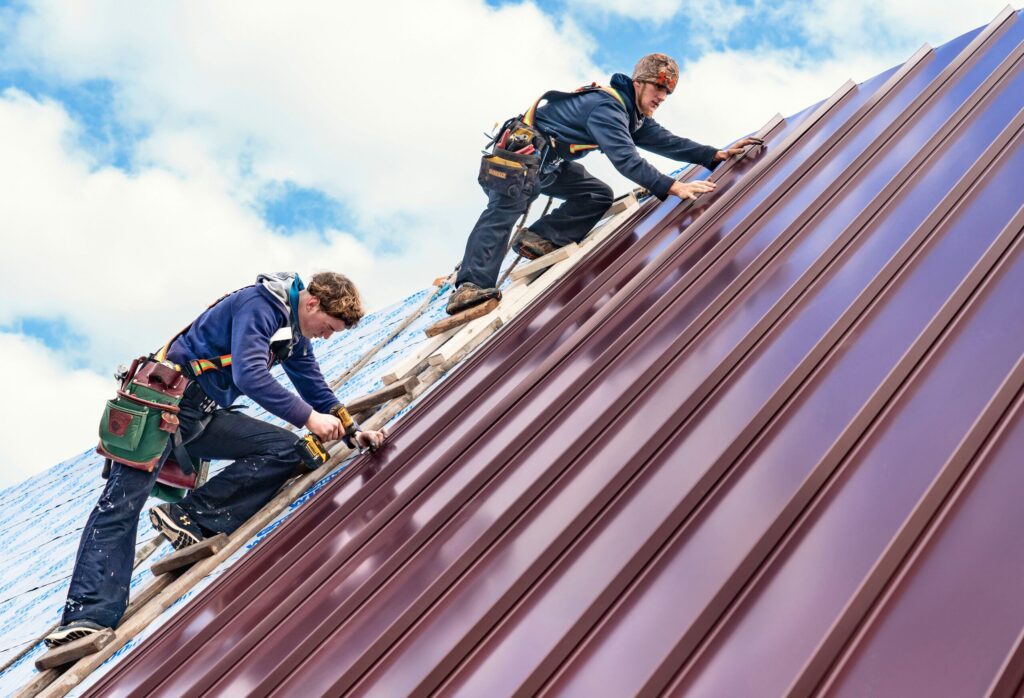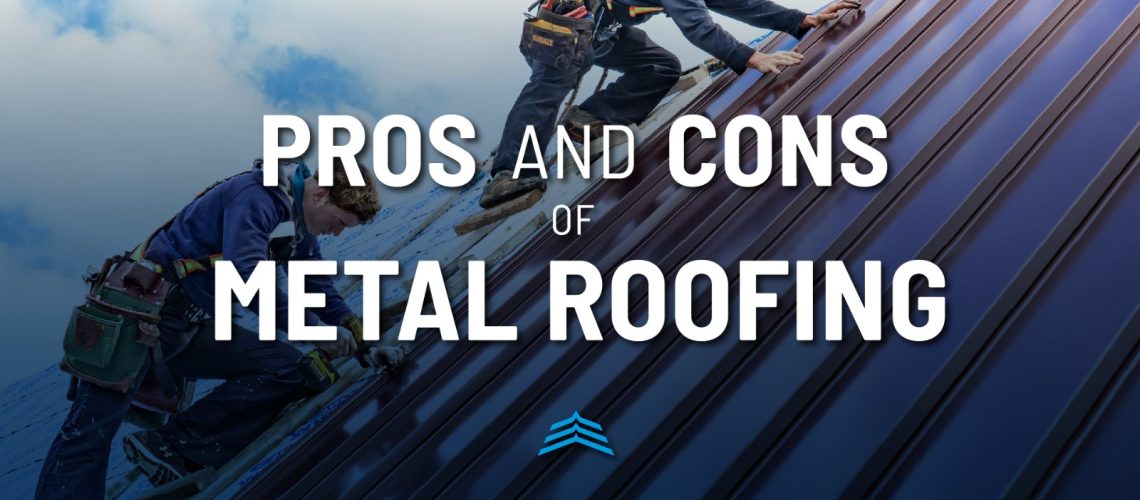Choosing a roofing material is a critical decision for any homeowner. Metal roofing has grown in popularity, offering both significant benefits and some potential drawbacks. In this article, we’ll explore the pros and cons of metal roofing to help you decide if it’s the right fit for your home.
What is Metal Roofing?
Metal roofing refers to roof systems made from various metal sheets or panels, often composed of materials like steel, aluminum, or copper. Available in a range of styles such as standing seam, corrugated panels, and metal shingles, these roofs are known for their durability and versatility. Metal roofing is especially popular in areas prone to harsh weather conditions due to its superior ability to withstand the elements compared to other materials.
Modern metal roofs are often coated with a protective layer to prevent rust and increase longevity. These coatings not only extend the roof’s life but can also be customized in color and finish, making metal roofs both functional and stylish.

The Advantages of Metal Roofing
Metal roofing comes with several benefits that make it a top choice for many homeowners. Let’s dive into some of the key advantages.
- Durability and Longevity
One of the standout benefits of metal roofing is its incredible durability. Unlike traditional shingles that may need replacing every 15 to 20 years, metal roofs can last 40 to 70 years with proper maintenance. They are resistant to cracking, shrinking, and eroding. Metal roofs also hold up well against high winds, heavy snow, and even fire, making them an excellent option for areas prone to severe weather.
- Energy Efficiency
Metal roofing is often more energy-efficient than other options. The reflective properties of metal help reduce heat absorption, especially when coated with specialized finishes that reflect solar energy. This can significantly reduce cooling costs in warm climates. Additionally, some metal roofs are designed to allow air circulation between the roof deck and metal sheets, further boosting energy efficiency by enhancing ventilation.
- Low Maintenance
Compared to other roofing materials, metal requires less maintenance. Regular inspections and occasional cleaning are usually enough to keep a metal roof in top shape. Thanks to its hard surface, debris like leaves or snow slides off more easily. Furthermore, many metal roofs come with warranties ranging from 30 to 50 years, offering peace of mind and saving on long-term maintenance costs.
The Disadvantages of Metal Roofing
While metal roofing has numerous advantages, it’s essential to be aware of its downsides before making a decision.
- Initial Cost
The upfront cost of metal roofing is one of its biggest drawbacks. It’s typically more expensive than asphalt shingles, with prices that can range from $5 to $15 per square foot installed. Though the long-term savings may offset this cost, the higher initial investment can be a deterrent for some homeowners.
- Noise Levels
Another common concern with metal roofs is noise. During heavy rain or hail, a metal roof can amplify sounds, making them more noticeable inside the home. While insulation and other soundproofing measures can help mitigate this, it’s an aspect to consider, especially if you’re sensitive to noise.
- Expansion and Contraction
Metal naturally expands and contracts with temperature changes. This movement can cause fasteners and seams to loosen over time, potentially leading to leaks or other issues if not properly addressed. Modern metal roofing systems are designed to accommodate these shifts, but periodic inspections are crucial to prevent long-term damage.
Metal Roofing vs. Traditional Shingles: Which is Better?
When deciding between metal roofing and traditional shingles, several factors come into play. Metal roofs outperform asphalt shingles in durability and lifespan, making them a better investment for homeowners looking for a long-term solution. They’re also more energy-efficient and eco-friendly, with many options made from recycled materials.
On the other hand, shingles are more affordable and easier to install, making them a popular choice for those on a tighter budget. Shingles also offer more aesthetic variety and are easier to repair if damaged. Ultimately, the decision depends on your priorities—whether it’s cost, longevity, or overall performance.
Is Metal Roofing Right for You?
Metal roofing offers a mix of benefits and drawbacks that vary depending on your specific needs and circumstances. Its long-lasting durability, energy efficiency, and low maintenance make it an appealing choice for many. However, the higher upfront cost and potential noise issues are factors to weigh carefully. By considering both the pros and cons, you can make an informed decision on whether metal roofing is the best option for your home.

